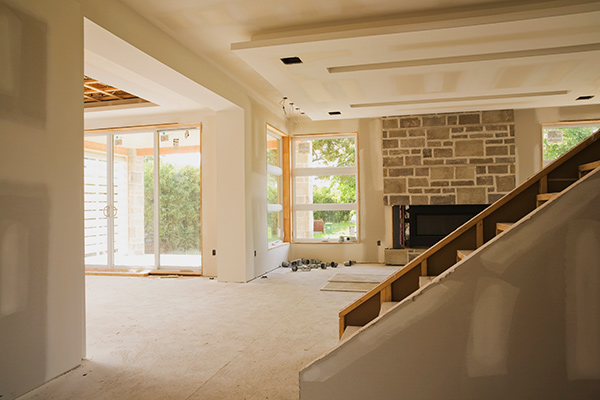Popular TV shows may make home renovations look easy, but sometimes parts of the project are best left to the pros. General contractors, or GCs, are the ones who can make your visions a reality. But from checking references and licensing to financing work and setting a timeline, hiring a GC can feel like job of its own. So we asked David Roth, a New York–based general contractor and the owner of DMA Contracting Inc., for a list of questions to help streamline the process—and weed out any bad actors.
5 Questions To Ask Before Hiring A Contractor
-
What are your qualifications?
Find out how long your contractor has been working in the area. “Five or more years of experience is a good benchmark,” says Roth; and a general-contractor license is a non-negotiable. “Ask for a license number and call the local department of consumer affairs to see if there are any existing complaints,” he says. Trades like plumbing and electric have separate licensing—so make sure you inquire about these too, if your project will require these services.
-
What insurance do you have?
All contractors should have general-liability coverage as well as workers’-compensation and disability policies. Roth advises notifying your own insurance company of the scope of your renovation—and suggests having an agent review the contractor’s insurance to make sure there are no gaps in coverage. An agent should also be able to tell you what is protected by your homeowners insurance policy through the GEICO Insurance Agency.
-
What is the timeline for my project?
Start by asking how long the work will take and whether you need to seek an alternate residence or make other arrangements for bathing, cooking and/or sleeping. And remember, the best way to keep any pro on task is by paying on time. According to Roth, a 10 percent down payment is standard for the industry. “From there, you want to pay either slightly ahead of the work or right behind it,” he says. The key is setting up payments based on milestones reached or percentages of the job completed—whichever you and your contractor prefer.
-
Will this require a permit?
“In general, anything that involves an architect will require a permit,” says Roth. In some areas, homeowners can pull their own documentation, but pros know the proper channels, says Roth, and can probably do it faster. Obtaining the proper permits and documentation is key to starting a new project on your home. If work is done without these things, it may not be completed to code—which could result in unsafe living conditions and could become an issue if you go to sell your house.
-
Who are your main suppliers?
If you have the time and your project isn’t too big, consider sourcing your own materials. According to Roth, many contractors will gladly refer you to their suppliers—and pass along your project’s specs as well as their contractor’s discount, without markup, so you can order items directly. While you’re at it, ask suppliers how they like working with your prospective contractor.
Beware Storm-Chasing Contractors
“Unscrupulous roofers or contractors … come out of the woodwork in the aftermath of hailstorms, tornadoes and severe windstorms,” says the National Insurance Crime Bureau (NICB). “Victims may be pressured into signing a contract and paying out their insurance claim money or their own savings to a contractor who may take the money and run or do minimal repairs or shoddy repairs, leaving the property owner holding the bag.”
Here’s what the NICB says to consider before you agree to any post-storm repair work:
- Get more than one estimate.
- Get everything in writing. Cost, work to be done, time schedules, guarantees, payment schedules and other expectations should be detailed.
- Demand references and check them out.
- Ask to see the salesperson’s driver’s license and write down the license number and their vehicle’s license plate number.
- Never sign a contract with blanks; unacceptable terms can be added later.
- Never pay a contractor in full or sign a completion certificate until the work is finished and ensure reconstruction is up to current code.
- Make sure you review and understand all documents sent to your home insurance carrier.
- Never let a contractor pressure you into hiring them.
- Never let a contractor interpret the insurance policy language.
- Never let a contractor discourage you from contacting your homeowners insurance company.
Keep your home protected with affordable homeowners insurance through the GEICO Insurance Agency. Get a fast, free quote on geico.com.
Read More: Need more advice? Here are 7 home renovation do’s and don’ts to guide you through your project from start to finish.
By Danielle Blundell










Sarah Grace Villaflor says,
Thanks for sharing this post regarding on choosing a reputable home contractor, And I like your idea that “Find out how long your contractor has been working in the area. “Five or more years of experience is a good benchmark,” says Roth; and a general-contractor license is a non-negotiable. “Ask for a license number and call the local department of consumer affairs to see if there are any existing complaints,” he says. Trades like plumbing and electric have separate licensing—so make sure you inquire about these too, if your project will require these services.”